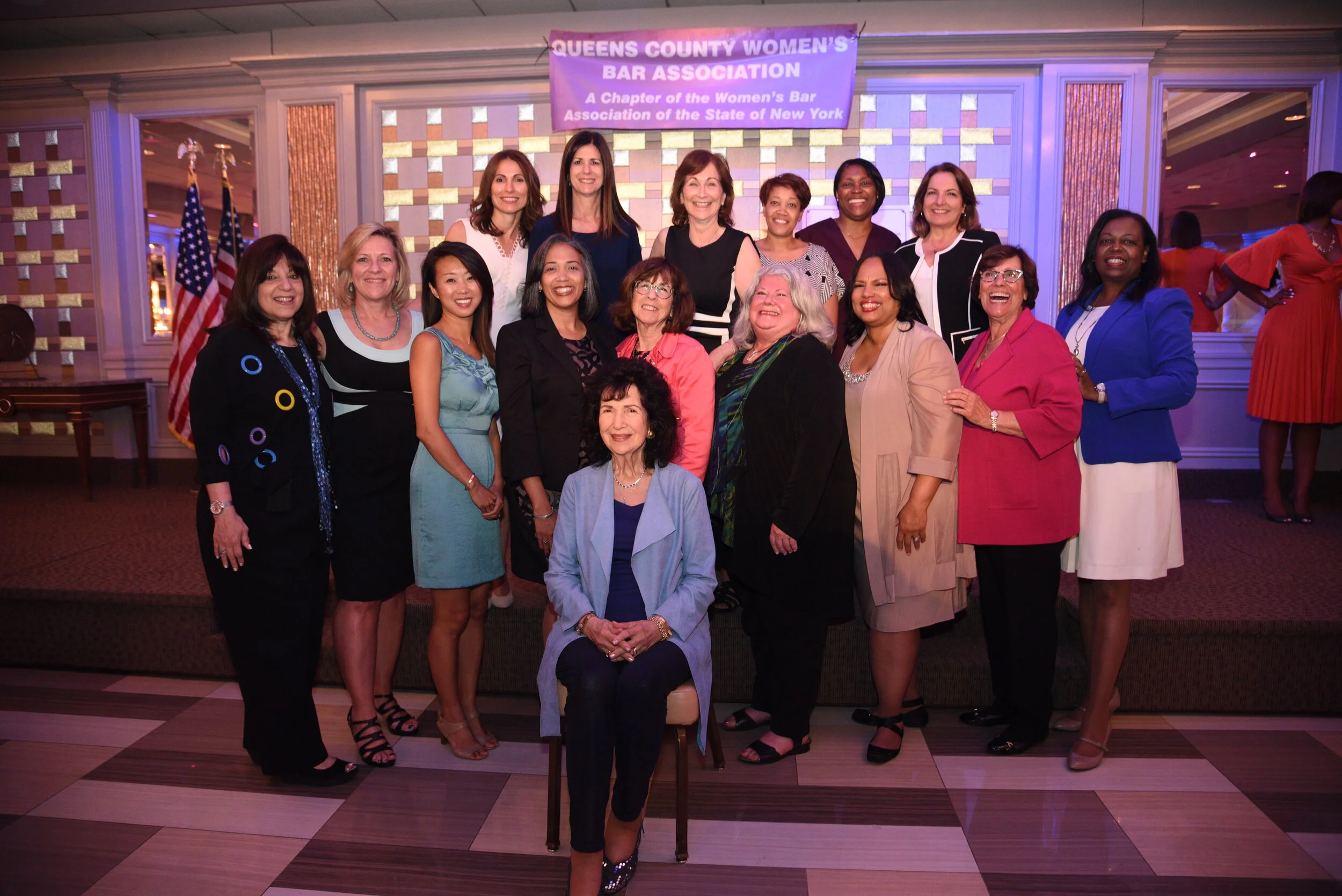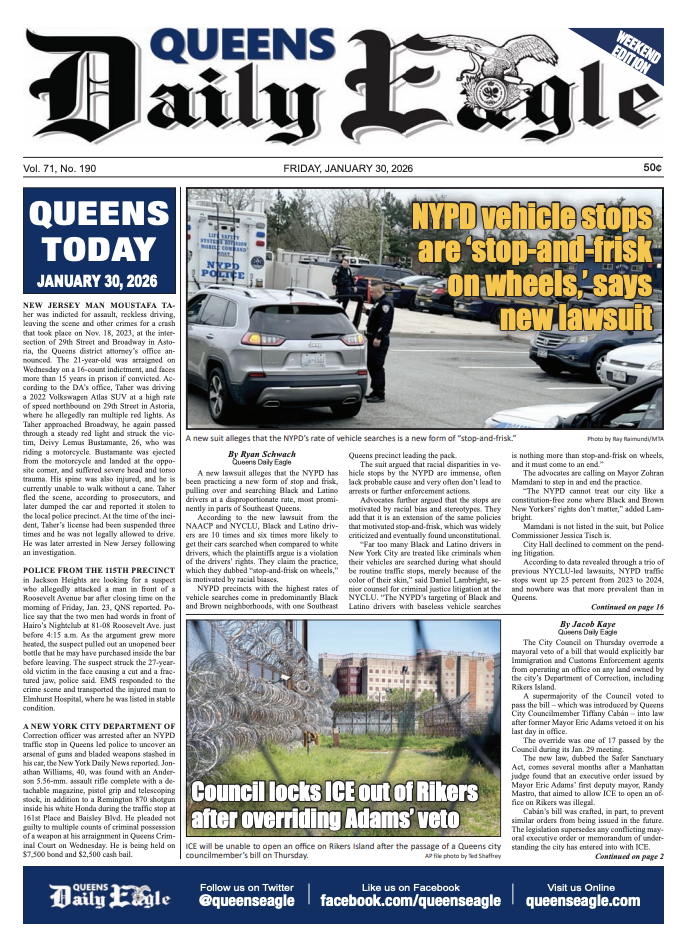NY judicial report reveals bias against women in state court system
/Past presidents of the Queens County Women’s Bar Association. A new state report finds lingering biases throughout the court system. File photo courtesy of QCWBA
By David Brand
A committee of New York judges and attorneys released the results of a statewide survey Monday revealing persistent biases against women at all levels of the state court system.
The New York Judicial Committee on Women in the Courts revisited a study on gender discrimination in the courts that was first completed in the mid-1980s. More than 5,300 attorneys responded to an online survey detailing their experiences, with a particular focus on courtroom interactions, sexual harassment, appointments for women attorneys, childcare and the treatment of domestic violence, rape and prostitution cases. Two Queens judges, Bruna DiBiase and Toko Serita, serve on the panel.
Though conditions have improved since the initial report in 1986 — including a major increase in the number of women judges presiding across New York — several problems persist, the committee found. Ten percent of women who completed the survey said they had experienced unwelcome physical contact by other attorneys “very often or often” while 36 percent said it occurred at least “sometimes.” Seventeen percent of court personnel also said that unwelcome contact occurs “sometimes.”
Meanwhile, less than a third of all female survey participants said they knew how to file a sexual harassment complaint with the state court system.
More than half of the women who responded to the survey said judges give more credibility to statements and arguments made by their male peers. Only 13 percent of the men surveyed said the same.
Nearly two-thirds of the women surveyed said judges and law enforcement treat people who buy sex with less severity than the person who sells sex — undermining the goal of Human Trafficking Intervention courts desgined to assist sex workers rather than simply punish them for prostitution. More than half of the women surveyed also said prosecutors are harsher on sex workers than patrons.
“Though we have clearly come a long way in reducing gender bias in the courts, the survey findings show that substantial inequities continue to exist regarding the treatment of women litigants, witnesses and attorneys — including inappropriate or offensive conduct directed toward women by far too many members of the legal profession,” said Chief Judge Janey DiFiore.
The report, she said, “will pave the way to further reforms as we seek to turn the ideal of the gender-neutral courtroom into reality.”
The committee, which is chaired by former Judge Betty Weinberg Ellerin, recommended publicizing sexual harassment reporting procedures, instituting mandatory gender bias training and establishing Human Trafficking Intervention courts in each county in the state. They also encouraged courts to establish child care centers and to explicitly designate lactation centers as mandated by state law.
Queens County Women’s Bar Association President Soma Syed said the court system deserves a hard look to overcome the inequities and obstacles that persist for women, particularly women of color.
“This is not new. We all know that certain biases exist and they range depending on what race you’re from and the community you’re active in and its different depending on what district you’re in,” Syed said.
“This tells us our work is not finished, our struggles are not at an end and we need to do better.”




